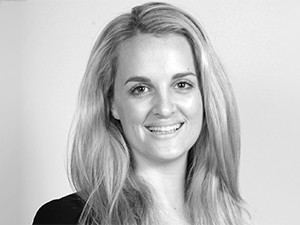
On a snowy Paris evening in 2008, Travis Kalanick and Garrett Camp had trouble requesting a cab. So they came up with a simple idea - tap a button, get a ride.
What started as an app to request premium black cars in a few metropolitan areas is now changing the logistical fabric of cities around the world. Whether it's a ride, a sandwich, or a package, Uber uses technology to give people what they want, when they want it.
"For the women and men who drive with Uber, our app represents a flexible new way to earn money. For cities, we help strengthen local economies, improve access to transportation, and make streets safer. When you make transportation as reliable as running water, everyone benefits," said Samantha Allenberg, lead in developing communications strategy at Uber.
Uber will be taking the podium at the ITWeb Digital Economy Summit 2016 in October, where they will do a case study of how they got to be ultimate disrupters.
"This initial start to Uber has laid the foundations for the way in which Uber operates. In a world where everyone is striving to come up with the next big thing and being 'innovative' is on everyone's lips, we as a company need to live the brand," she continued.
Just to show that being disruptive is part and parcel of Uber, Uber started with UberBlack, a more premium product. Then they introduced the more cost-effective option, UberX, which quickly overtook the UberBlack business.
"If Uber didn't do it, someone else would have. Being disruptive means we innovate and are constantly looking for ways to better the business. Everything we do is about disruption, if you are not questioning your own business model, then someone else is going to potentially do something that will disrupt your business model," said Allenberg.
"You disrupt to improve, which means that there is always space for improvement and therefore your product/service can never really be complete.
"'Disruption' or 'innovation' is continually changing and being able to adapt, which means you always have to be on top of your game to stay relevant."
Uber continues to develop useful features and campaigns that motivate people to talk and share.
"We are continually improving and reviewing our business in order to be the best in the market. In that sense, one can never get to a final stage where your work is complete."
Uber has grown from a single location to providing service to over 400 cities worldwide in six short years and has inspired many start-ups. "It has been a great journey and it is amazing that Uber has inspired start-ups to use Uber's formula for success. It's certainly flattering to think of how companies are referring to themselves as 'the Uber of', it just shows that Uber is leading the way, being an example of how to grow organisations and better companies the world over," said Allenberg.
"It's not just about the resources, technology and skills you need to utilise to become a disruptor, but you also need to change how you think, act, do business, learn and go about your daily life.
You need to have the right attitude and will often get criticism from other people who think your product/service won't work, but those who succeed are the ones that don't give up and always stay on course."
It is important to remember that a good business idea needs to improve other people's lives in the simplest way, she continued. Without that, organisations could struggle to have a successful product or service.
"Being a disruptor might seem chaotic, but knowing when it's the right time to introduce an innovative product could make or break your success.
"It might be great to be the first but at the end of the day the best usually wins. There are many examples where the first business didn't last long but someone else came along and did it better."
Share